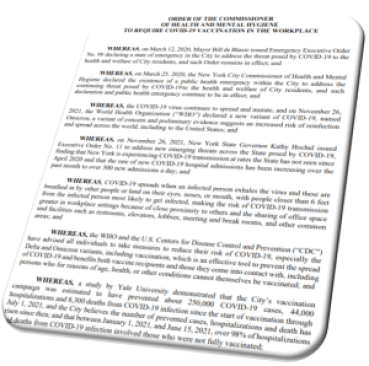Maryland recently became the tenth state to enact a paid family leave law – joining California, Colorado, Connecticut, Massachusetts, New Jersey, New York, Oregon, Rhode Island and Washington, as well as the District of Columbia and San Francisco. Although the legislature passed the Maryland Time to Care Act of 2022 by a supermajority vote on March 31, 2022, Governor Hogan opposed the bill and vetoed it on April 8, 2022. Just one day later, however, the legislature voted to override Governor Hogan’s veto by an overwhelming majority.
Although the bill will be phased in over the course of the next two-and-a-half years, Maryland employers should pay close attention to the law and the regulations that the Maryland Department of Labor will be implementing within the next year. To get ahead, employers should proactively make plans to revise their current leave policies and reach out to their HR and payroll providers to ensure that they are prepared to handle the necessary payroll tax contributions.
Effective Dates and Roll-Out of the Act
Similar to how the District of Columbia and other jurisdictions implemented their paid family leave laws, the law will be phased in over the course of several years. Specifically, the Act establishes a Family and Medical Leave Insurance Fund that will require all employers with 15 or more employees, all employees, and all self-employed individuals that elect to participate in the program to make contributions a fund beginning October 1, 2023. Notably, employers with less than 15 employees are not required to contribute to the fund, but employees of those small employers will still be required to contribute to the insurance fund.
The contribution rates will be set by the Maryland Secretary of Labor by June 1, 2023. Covered employees will be eligible to claim and receive benefits approximately a year-and-a-half later on January 1, 2025. The funding requirements and employer/employee contribution rates will also be periodically reviewed and subject to change based on bi-annual studies and recommendations by the Maryland Secretary of Labor.
Coverage and Qualifying Events under the Act
The Act defines “covered employer” broadly to any person or governmental authority that employs at least one individual in the state of Maryland. However, there are certain limitations on who is eligible to claim benefits. Covered individuals – i.e. employees eligible to claim benefits under the Act – are defined as employees who have worked at least 680 hours over the 12-month period immediately before the date that leave is to begin.
Continue reading →Like this:
Like Loading...
 The rule will phase in the new salary threshold in two steps over the next eight months, and automatically update it every three years thereafter based on Census data. The increase in the salary level basis threshold is a dramatic shift from the current threshold. As such, employers should audit their current wage practices promptly to ensure they are compliant with the new rule, as the first increase is set to take effect in just over two months on July 1, 2024.
The rule will phase in the new salary threshold in two steps over the next eight months, and automatically update it every three years thereafter based on Census data. The increase in the salary level basis threshold is a dramatic shift from the current threshold. As such, employers should audit their current wage practices promptly to ensure they are compliant with the new rule, as the first increase is set to take effect in just over two months on July 1, 2024.








